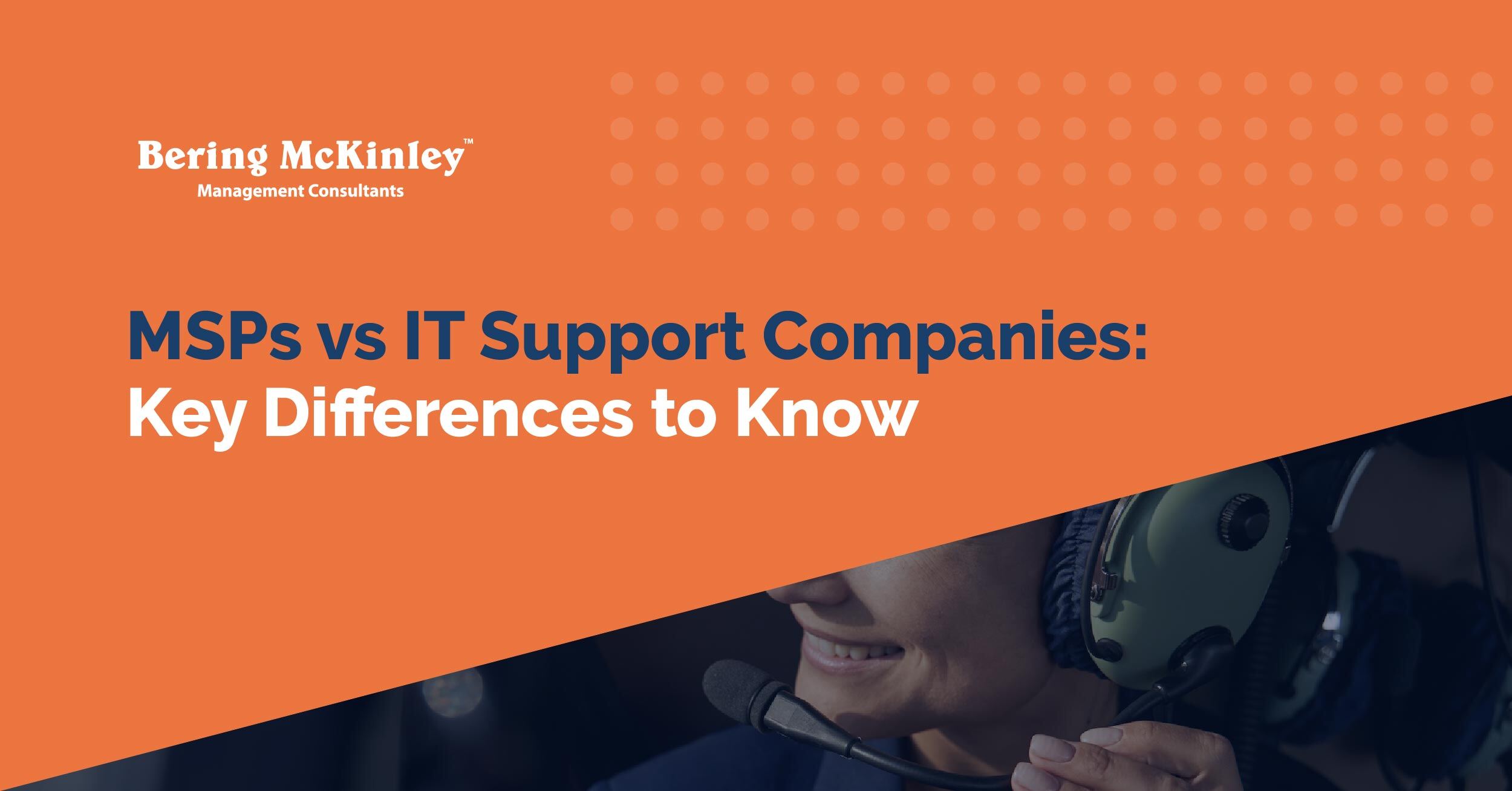Solving Common Profitability Challenges with MSP Financial Services
For Managed Service Providers (MSPs), the idea of profitability far exceeds the revenue numbers. The entity involves understanding where the money...
5 min read
 Josh Peterson
:
Updated on September 4, 2025
Josh Peterson
:
Updated on September 4, 2025
%20(12).png)
Growth doesn't wait for your back office to catch up. Legacy systems, manual processes, and fragmented tools have left small businesses and mid-sized operations stuck in maintenance mode.
Finance teams, in particular, are trying to juggle cost control, reporting, forecasting, and compliance—all while using tech that feels like it’s from another era.
That's why 70% of companies are already using managed services for half or more of their operations, including finance and accounting. And nearly half plan to expand that footprint over the next two years. As complexity scales, so does the need for smarter support, and that’s where managed service provider financial consulting comes in.
Let’s explore how MSP financial consulting drives revenue growth by enhancing efficiency, increasing scalability, and transforming IT operations into strategic business assets.
A managed service provider (MSP) is a third-party partner that runs specific business functions like IT, finance, cybersecurity, and compliance on your behalf. Instead of building out expensive internal teams, companies plug into MSPs for ongoing, expert-level support that scales fast, stays current, and delivers round-the-clock results.
Here are a few benefits of MSPs in revenue growth:
They fill talent gaps that are slowing companies down: One of the biggest roadblocks in 2025 has been a shortage of skilled professionals. MSPs help close that gap without long hiring cycles or training delays.
They help prevent revenue loss from downtime: Downtime is expensive. MSPs are wired for business continuity, and that’s why demand for 24/7 support and risk monitoring is surging across sectors.
They’re part of a $511 billion shift in operations: The global managed services market will hit $511.03 billion by 2029, growing at 6.9% CAGR. That growth reflects a shift in how companies think about scaling without overspending.
They bring real-time adaptability to outdated systems: As AI, IoT, and cloud tech evolve fast, MSPs are evolving faster. From automating support to tightening up cybersecurity, they help legacy-heavy industries stay future-ready.
We are in 2025, and tech adoption is no longer an issue for most industries. The issue, however, now lies in assimilating all your tech and strategies to work together efficiently. Managed Service Providers (MSPs) help you fill this IT gap on top of helping you build resilience, scale smarter, and uncover growth opportunities.
Here’s how that happens:
For many SMBs, inefficiencies don’t stem from a lack of effort; they stem from outdated tools that can’t talk to each other. Finance teams still juggle Excel sheets, payroll software, and accounting platforms that weren’t built to scale or share data.
MSPs solve this by integrating cloud-first systems that automate reconciliations, reporting, and vendor management. For example, in manufacturing, automated purchase order tracking reduces manual entry errors and improves cash flow visibility.
Hiring a full-time cybersecurity team isn’t realistic for a local veterinary group, a labor union, or a small church with donor data on file. Yet these organizations are still prime ransomware targets. That’s where MSPs offer a different model; it combines enterprise-grade protection with lean, subscription-based delivery.
From IoT device updates to 24/7 breach monitoring, MSPs prevent problems long before they hit your inbox. The growing need for cost-efficient IT services and continuous support is a key driver behind the managed services market’s growth.
Most small businesses are drowning in financial data without a clear system to interpret it. Managed service provider financial consulting changes that by layering expertise on top of real-time systems.
Instead of waiting for quarterly reviews, you get dynamic dashboards, cash flow alerts, and cost-saving recommendations in real time. For instance, for a regional manufacturer, this could mean adjusting material purchasing strategies mid-month based on demand trends.
With 38% of companies expecting the most value from managed services in actuarial and financial reporting, this is the new standard for staying profitable in unpredictable markets.
Growth doesn’t always send a calendar invite. A nonprofit landing a new grant or a small business entering a new city often faces scaling problems before they're fully ready. MSPs make expansion less chaotic by handling licensing, hardware procurement, employee onboarding, and system rollouts with pre-built frameworks.
Instead of scrambling to hire tech staff, businesses just turn up the dial on their service agreements. For instance, for a labor union expanding digital services to members in rural areas, an MSP can deploy secure platforms, mobile access, and helpdesk support within weeks.
Keeping up with tech trends is one thing. Implementing them without disrupting operations is another. MSPs act as tech translators.
They take care of testing, integrating, and maintaining tools like AI-driven analytics or predictive maintenance in industries like manufacturing. MSPs bridge the gap between what’s available and what’s actually useful.
Choosing an MSP is about making sure they can handle your real-world complexity. Here's a focused checklist to help you spot the right provider for your business:
Do they offer industry-specific expertise? Ask if they’ve worked with businesses like yours, not just generic SMBs.
Can they show proof of cost savings or ROI? Request actual case studies with real numbers, not vague promises.
Are they proactive or just reactive? Look for providers who highlight prevention strategies, not just fix tickets after something breaks.
Will they help with compliance and audits? This is critical for industries handling sensitive data—HIPAA, PCI, GDPR, etc.
How flexible are their service contracts? Your needs will change. See if they can scale up/down without penalties or heavy renegotiation.
Do they integrate with your existing tools? Avoid MSPs that push their stack over yours. Seamless integration matters more than retooling everything.
70% of businesses already use managed services for at least half of their operations, including finance.
MSPs help eliminate operational drag by automating, integrating, and simplifying legacy systems.
In 2025, security threats require enterprise-grade protection, even for small organizations.
Financial consulting through MSPs gives companies smarter forecasting without hiring in-house teams.
The right MSP helps businesses adapt, scale, and evolve without unnecessary overhead.
Picking the right provider requires industry fit, ROI evidence, flexibility, and integration support.
Managed Service Providers are strategic partners that help businesses stay agile, secure, and financially sharper. Whether you're scaling operations, modernizing finance, or plugging tech gaps, the right MSP can deliver value without adding internal overhead. They don’t just support your systems; they improve how your business runs.
Looking to refine how your organization grows with the right MSP partnership?
Bering McKinley’s expert consultants offer managed service provider CFO services and custom IT solutions designed for small businesses, manufacturers, unions, and beyond.
Schedule a consultation with our experts today.
%20(9).png)
For Managed Service Providers (MSPs), the idea of profitability far exceeds the revenue numbers. The entity involves understanding where the money...

Many businesses find themselves asking the same question when it comes to IT services: What’s the difference between a Managed Service Provider (MSP)...
%20(19).png)
You built your MSP from the ground up. You’re delivering exceptional services, keeping clients happy, and showing signs of growth. Just then, trouble...